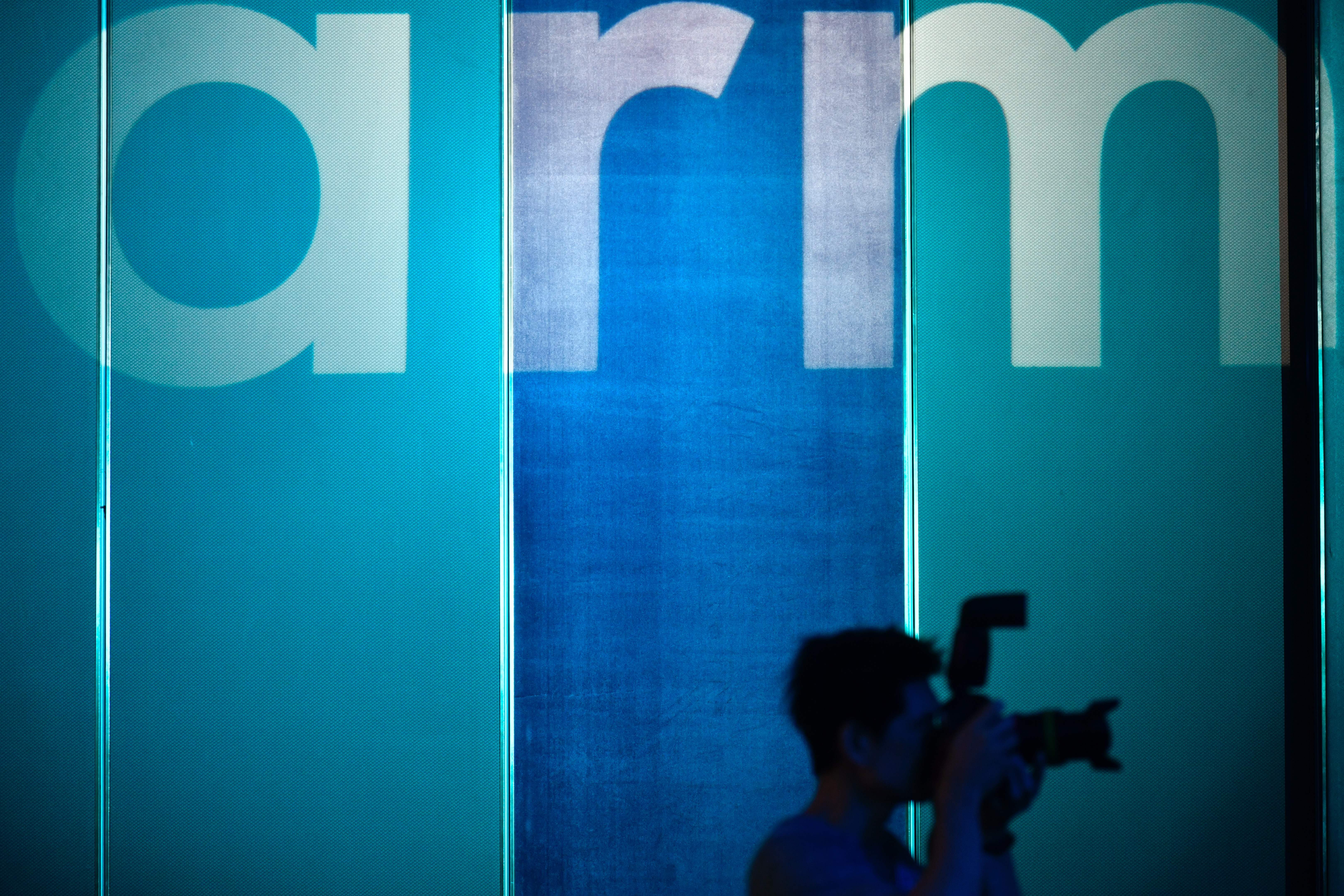
SAM YEH | AFP | Getty Images
Nvidia‘s $40 billion bid to buy U.K. chip designer Arm from Japanese tech giant SoftBank isn’t quite going to plan.
The deal, which is set to miss the target deadline of March 2022, is being closely scrutinized by regulators in the U.S., the U.K., Europe and China who are concerned that it could reduce competition. SoftBank, Nvidia and Arm agreed to complete the transaction within 18 months of September 2020.
There’s a high chance that one or more of the regulators will block the deal altogether, according to Gartner analyst Alan Priestley and other investors.
But Nvidia and Arm aren’t giving up yet.
In a 28-page written submission to the U.K.’s Competition and Markets Authority that was published Monday, the semiconductor heavyweights outlined why the deal should be approved. They accused the deal’s critics of “romanticizing” Arm’s history, ignoring the company’s current financial position and overstating Arm’s current market power.
Widely viewed as a the jewel in the crown of the U.K. tech industry, Arm was spun out of an early computing company called Acorn Computers in 1990. The company’s energy-efficient chip designs are used in 95% of the world’s smartphones and 95% of the chips designed in China. The company, bought by SoftBank in 2016 for £24 billion ($32 billion), licenses its chip designs to more than 500 companies who use them to make their own semiconductors.
Critics are concerned that the merger with Nvidia — which designs its own chips — could restrict access to Arm’s “neutral” semiconductor designs and may lead to higher prices, less choice and reduced innovation in the industry. But Nvidia argues that the deal will lead to more innovation and that Arm will benefit from increased investment.
Britain’s Digital and Culture Secretary, Nadine Dorries, ordered a “phase 2” probe into the takeover in November. The probe — which is being carried out by the CMA over a 24-week period — will investigate antitrust concerns and national security issues associated with the deal. The submission from Nvidia and Arm does not mention security once.
Elsewhere, the Federal Trade Commission sued to blocked the deal in December on antitrust grounds, while the European Commission, the executive arm of the EU, launched its own in-depth investigation into the deal in October.
“Whilst Arm and Nvidia do not directly compete, Arm’s IP is an important input in products competing with those of Nvidia, for example in datacenters, automotive and in internet of things,” Margrethe Vestager, the European Commission’s executive vice president, said in a statement.
“Our analysis shows that the acquisition of Arm by Nvidia could lead to restricted or degraded access to Arm’s IP, with distortive effects in many markets where semiconductors are used,” she added.
In their submission, Nvidia and Arm attempted to downplay the assertion that the deal could cut off competitors from key Arm technology.
“The theory does not hold up to scrutiny,” they wrote. “Trying to foreclose Arm licensees would immediately reduce Arm’s licensing revenue, immediately damaging Nvidia’s investment. No economically rational, publicly traded entity would embrace such a self-defeating strategy.”
Arm IPO?
Some critics have suggested SoftBank should list Arm on the stock market instead of selling the Cambridge-headquartered firm to Nvidia. But Nvidia and Arm claim that the acquisition is the best option on the table and that an IPO would pressure Arm to “narrow its focus and limit investments.”
The duo wrote: “In the media, deal opponents urge the CMA to block the deal so that Arm can pursue an initial public offering, which they assume would be launched in the UK on the London Stock Exchange. They equate Arm’s popularity with a high market valuation and success, but the public markets are unsentimental. The capital markets demand profitability and performance.”
“SoftBank considered and rejected an IPO in 2019 and again in early 2020 because the markets would not give SoftBank the necessary return on its investment. While Arm’s licensees such as Apple, Qualcomm, and Amazon have enjoyed skyrocketing revenue growth and profits, as well as soaring market valuations, Arm has lately endured comparably flat revenues, rising costs, and lower profits that would likely present challenges for a 30-year old public company. The capital markets would expect Arm to make significant strategic changes, including cutting costs to maximize Arm’s value.”
Source: CNBC
